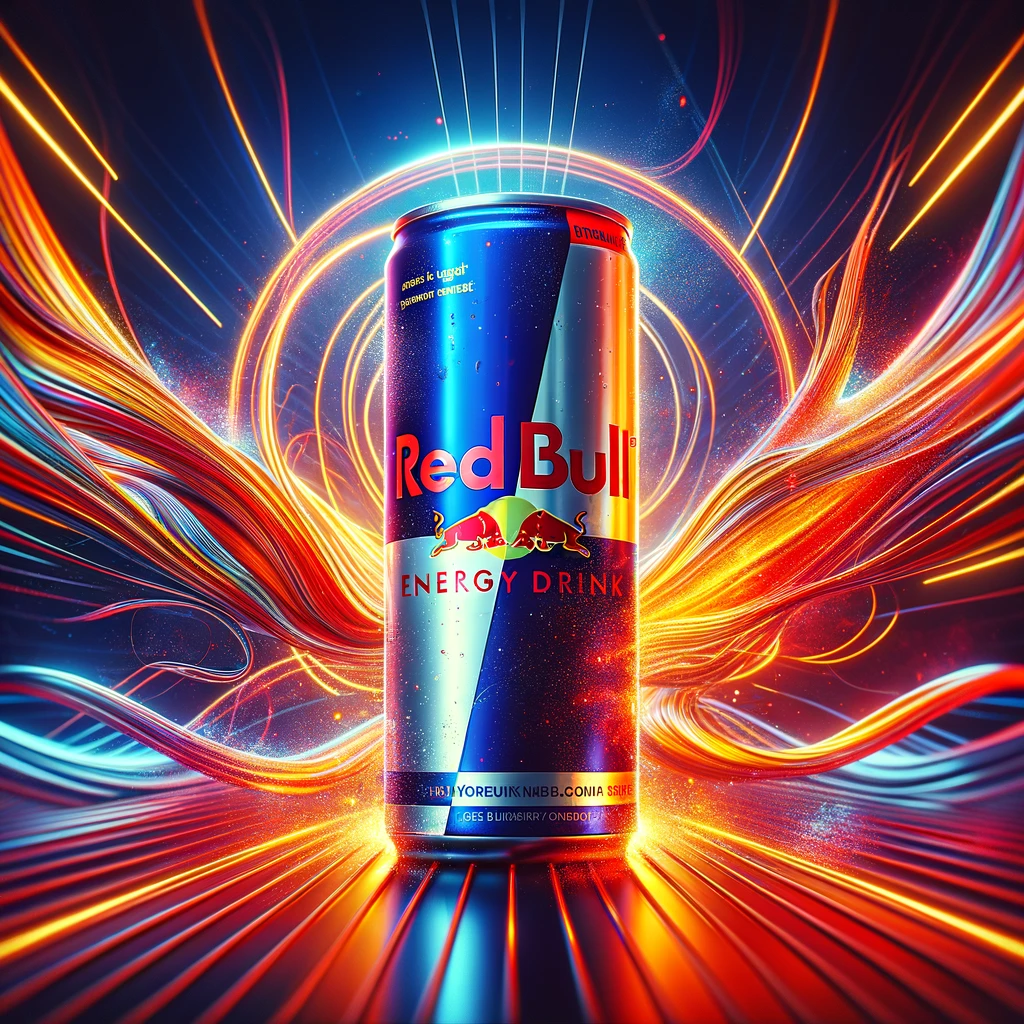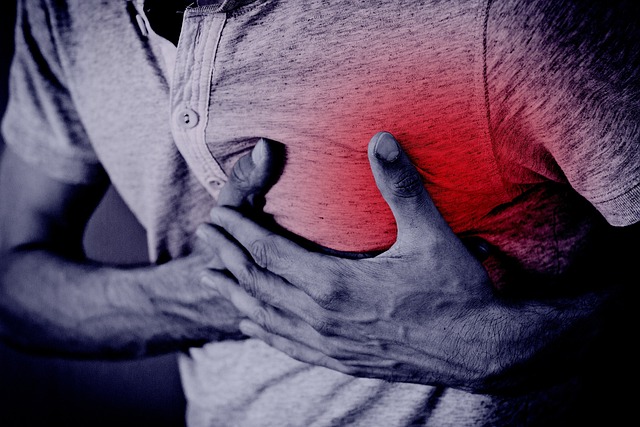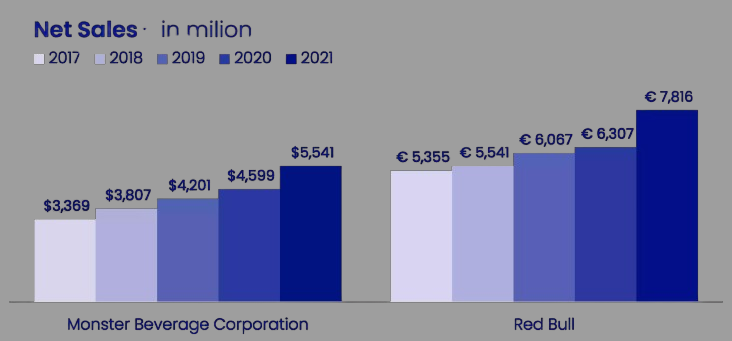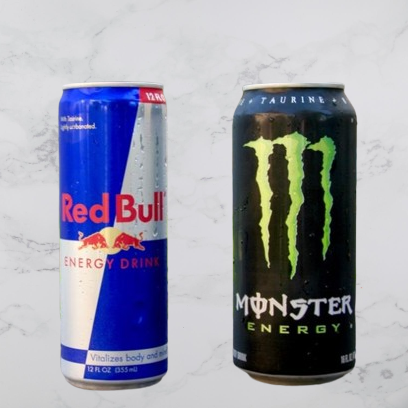Red Bull Energy Drink | Nutrition Facts, Benefits & Side Effects

It is a challenge in present-day society to cater to one’s energy demands throughout the day. And if you are a student studying through the night before an exam. A business person working long hours to meet all those pressing deadlines; a sportsman or a woman who wants to rise to a higher level in his or her game. Red Bull Energy Drink has become the answer to every one of those millions of people who would love that new lease of energy. However, a question that arises regarding Red Bull is what makes it stand out in the rather saturated market of energy drinks. Introducing this impressive energy booster product – Red Bull. This document provides detailed information on what this product is, its benefits, and how it can be used.
Red Bull Energy Drink Nutrition Facts
- Energy: 110kcal
- Total fat :0g
- Saturated fat: 0g
- Trans fat: 0g
- Cholesterol: 0 mg
- Sodium:105mg
- Total carbohydrates: 28mg
- Sugars: 27g
- Protein: Less than 1g
- Caffeine: 80mg
- Taurine: 1000mg
- Niacin(vitamin B3): 20mg
- Vitamin B6: 5mg
- Vitamin B12: 5 micrograms
Red Bull Energy Drink Benefits
Similarly to other sodas and cocktails, people usually purchase Red Bull energy drinks in order to receive the desired surge of energy.
Here are some beliefs regarding the positive effects of Red Bull with the moderate degree of its consumption believed to:
Increased Energy and Alertness
The first and main strength of Red Bull is that it helps to be energized. Also, feel alert right after consumption due to the effect of caffeine. This is especially helpful to those who require to avoid sleep or sleepy moments. For Example, the course of driving for hours, studying for an examination or performing duties that they require focus to accomplish.
Improved Physical Performance
This is the primary stimulant found in Red Bull and there is over 80mg of it in each can. Research also reveals that energy drinks enhance physical performance. It is done by extending the duration during which an athlete is able to run or exercise and also by lessening the degree of exertion that the athlete feels. Fitness enthusiasts have been known to prefer them due to their effectiveness in increasing the level of physical activity.
Enhanced Mental Performance
Apart from its expenditure on the body muscles, caffeine also boosts parts of the brain that are specific to memory, alertness, and speed in completing tasks, which makes Red Bull the most preferred to help with anything that involves brain.
Metabolism Boost
An increase in metabolic rate is associated with caffeine and thus it is used to burn calories. However, this effect should not be solely relied upon to drive people toward a healthy weight and better health
Source of B-Group Vitamin
Red Bull is rich in B-group vitamins, including niacin (B3), pantothenic acid (B5), B6, and B12. These vitamins play a role in the generation of energy, proper working of the brain, and clearing of skin and hair.
It is relevant to mention that while consuming products like Red Bull clients will get all the mentioned benefits, but at the same time, their organism is going to be loaded with a big amount of sugar and caffeine which can be detrimental to health, if used frequently.
Red Bull energy drink side effects
Caffeine Overconsumption
That energy-boosting liquid from Red Bull is harmless as it has only 80 mg of caffeine per 250 ml – the same as a cup of coffee. Coffee overindulgance can result in restlessness at night, difficulty in sleeping, headaches, dizziness, increased heartbeat rate, anxiety, among other complications. People who are sensitive to caffeine or those who consume a lot of caffeinated products in their diets may be more vulnerable.
Especially when used in large quantities or consumed by certain groups of people, some of the major concerns are:
Sugar Content
I want to stress that one serving of Red Bull contains a lot of sugar. And if consumed in great quantities can lead to health complications. The recorded side effects include increased weight, increased incidence of type II diabetes, periodontal disease loss of teeth, and increased propensity to cardiovascular disease. Red Bull has a sugar-free variant available but according to nutrition content information, the normal Red Bull contains high sugar levels and may not be safe to consume for those on a low-sugar diet.
Cardiovascular Problems

Research also shows that the use of energy drinks can actually raise blood pressure and pulse. And this can be counter-productive to people with hypertensive heart disease. Notable risks include deep vein thrombosis as well as further doubts that have been voiced regarding potential cardiovascular issues, specifically serious ones, particularly when taking large amounts of energy drinks or when mixing them with apple cider vinegar.
Mental Health Effects
The worst contribution of energy drinks is that, they provide high energy. But these energies trigger stress and increased levels of anxiety to the extent of causing panic attacks. Or as has been reported in younger individuals or those with a previous history of psychological disorder.
Risk of Addiction and Withdrawal
It is also important to note that constant users of this drink develop a caffeine tolerance and therefore require increased amounts of Red Bull to have similar effects. Some of the symptoms that are likely to be experienced when using the drug are headache, irritability, and fatigue and therefore it is advisable that the user should not stop the use of the drug suddenly.
Interactions with Alcohol
The use of Red Bull with alcohol is quite frequent today but it is bad for your health. By provoking the function of Red Bull as a stimulant, it can mask a state of depression caused by alcohol which makes one cut down on the amount of alcohol consumed. A UK study found that this was likely to raise the chance of alcohol-related issues, including cases and accidents.
Potential for Overconsumption
Red Bull as a marketing tool with a focus On becoming an energy booster and performance-enhancing drink. There is another issue since people are able to take large amounts of it to stay awake or get a ‘kick-start’ in a certain physical activity. This only worsens the negative effects associated with it.
These are possible dangers that people should be aware of. And should limit their intake of such products as Red Bull energy drinks wherever possible. These drinks are prohibited for women with those diseases, pregnant women, and children or they should consume them in limited amounts after consulting their doctor.
Market Value of Red Bull
By extending up to 2024, the market value of Red Bull brands was observed to be appreciated. Meanwhile, Komenda (2014) projects that Red Bull is on course to achieve more than €10 billion ($10. 9 billion) in sales revenue by 2023 with more than 12 billion units of sales of energy drinks. While Red Bull expanded at a very high rate in the industry it has retained its market share. And carried on with its economic growth with just a 9% increase in sales. The brand requires a central place on the organizational platform of the international market of energy drinks. It takes 42% of its shares by the year 2020. From these data, we can assert that the market value of Red Bull has stabilized and has prospects of expansion till the year 2024.

Comparison of Red Bull vs. Monster Energy Drink and Celsius Energy Drink
| Aspect | Red Bull | Monster | Celsius |
| Nutritional Content | Similar to Monster | Similar to Red Bull | Lower sugar, more caffeine, and additional nutrients |
| Caffeine Levels | 75mg per 8-ounce serving | 85mg per serving | 200mg per can |
| Sugar Content | 27g per 8.4oz can | 28g per can | No sugar, 10 calories |
| Taste | Distinct flavor profile | Sweeter taste | – |

Red Bull energy drink vs. Beer
| Aspect | Red Bull | Beer |
| Caffeine Content | Lower caffeine content | Varies depending on the type |
| Sugar Content | High sugar content | Varies depending on type |
| Nutritional Value | Contains B vitamins | Varies depending on the type |
| Consumer Base | Predominantly male base | Consumed by adults |
| Market Share | 27% in the U.S. | Popular worldwide |
How much caffeine is in a can of Red Bull?
Currently, a regular Red Bull dispenser comes in a 250-milliliter bottle and one serving comes to 80 milligrams with the caffeine strength being equal to that of a cup of coffee.
Can Red Bull help improve workout performance?
Ans: Yes it can. Red Bull has properties that improve the body’s endurance and the rate of degradation which might appeal to athletes.
Is Red Bull suitable for vegans?
Yes, Red Bull is safe for vegetarians. Because the commercial non-alcohol energy drink company, Red Bull GmbH does not include any animal-derived product.
How should Red Bull be stored?
Red Bull is best to slowly should not be stored at room temperature and should not be exposed to heat, especially sunlight.

![Do tomatoes contain nicotine? Yes, tomatoes contain small amounts of nicotine, with ripe tomatoes containing around 0.00001 mg of nicotine per gram[1][2][3][4]. Citations: [1] https://snusboss.com/nicotine/food-that-contains-nicotine/ [2] https://nicokick.com/us/pouch-perfect/surprising-foods-that-contain-nicotine [3] https://www.ncbi.nlm.nih.gov/pmc/articles/PMC4864980/ [4] https://www.nejm.org/doi/full/10.1056/NEJM199308053290619 [5] https://www.eurl-pesticides.eu/userfiles/file/EurlSRM/LAPRW2019_Poster_Nicotine.pdf](https://chemistlight.com/wp-content/uploads/2024/06/Do-tomatoes-contain-nicotine-768x518.jpg)




